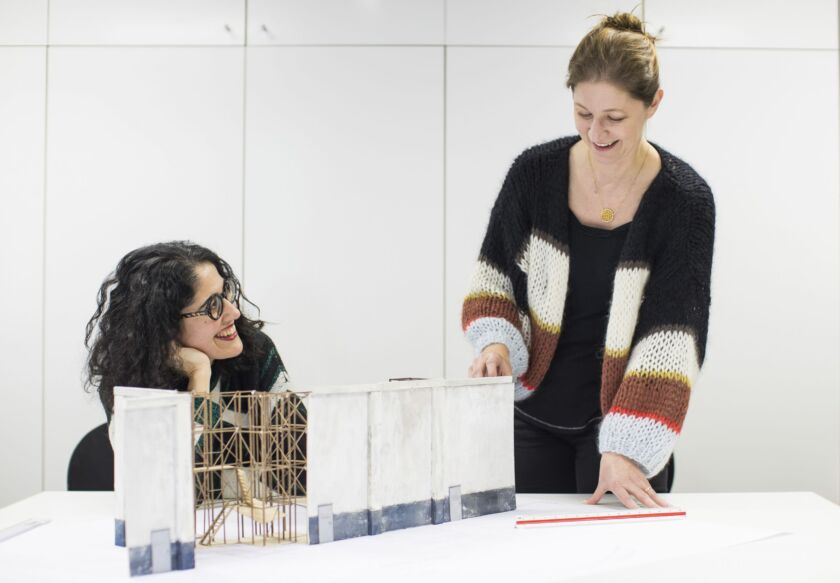Clément’s Salzburg debut: Jacques Offenbach’s “Les Contes d’Hoffmann”
Director Mariame Clément gives first insights into her new production of Jacques Offenbach's LES CONTES D'HOFFMANN

Artistic Director Markus Hinterhäuser has entrusted the new production of Les Contes d’Hoffmann (Tales of Hoffmann) by Jacques Offenbach to director Mariame Clément. Marc Minkowski conducts the Vienna Philharmonic, the orchestral lodestar of the Salzburg Festival.
Mariame Clément, from Paris, felt irresistibly drawn to opera from the age of five. To this day, she is fascinated by this “magical art form”, as she calls it, because although it is artificial and stylised, it touches us in a very original, concrete and immediate way. She is making her Salzburg debut with an opera that has not been on the festival programme since 2003: Les Contes d’Hoffmann. In this interview, she gives some initial insights into her view of the work.
In his last, not quite completed work, Offenbach puts a historical figure on stage as an operatic character: the German Romantic poet E.T.A. Hoffmann. Who is the Hoffmann we meet in this “opéra fantastique”?
Who Hoffmann actually is is indeed the central question when staging Les Contes d’Hoffmann. It is important to understand the main character and to recognise what he can convey to us. In any case, Hoffmann – like his real-life model – is an artist, and of course he is the author of the stories we experience in the three centre acts. Unusually, however, Hoffmann also appears in these stories as an acting figure. In this way, the play conveys the idea that every artist tells of himself, of his own self, in his works. In my production, my aim will be to explore how art and life interweave in this specific case. I will link the three stories with individual stages of Hoffmann’s biography as an artist.
The stories are all unhappy love stories in which Hoffmann portrays himself as the “victim” of the respective protagonists …
The image of women reflected in Olympia, Antonia and Giulietta is not unproblematic from today’s perspective: we have a doll, an artist who is not allowed to express herself and a courtesan – in other words, a whore. As Hoffmann informs his audience, the three women in the stories are all contained in the “real” woman of the frame story, i.e. the Stella with whom Hoffmann is probably still in love despite their separation. Structurally, Olympia, Antonia and Giulietta are pure projections of Hoffmann, a fantasy of the author. Nevertheless, it is important to me to give these women – or this one woman – an independent life and not just show them as projections.
The idea that Olympia, Antonia and Giulietta are aspects of Stella is also conveyed by the fact that all of these roles are to be performed by a single singer – a requirement that the Salzburg Festival follows in contrast to many other productions. The second major quadruple role in the opera is Lindorf and his counterparts in the three tales. Who are these so-called “villains”?
I have the impression that people here often speak too hastily and in generalised terms of “villains”, i.e. basically embodiments of the devil. In my reflections on the staging, these characters formed a starting point insofar as I realised that their functions in the three stories are very different. Coppélius in the Olympia act and Dr Miracle in the Antonia act do not actually act directly against Hoffmann, but rather against Olympia’s “inventor” Spalanzani and against Antonia and her father Crespel. Hoffmann is something like collateral damage; he suffers, but the “evil” is not directed against him – which I find very important. In the Giulietta act, on the other hand, we have a Faustian pact between Giulietta and Dapertutto, whose aim is to rob Hoffmann of his reflection, i.e. his soul. The situation is quite different from the two preceding acts, and what Hoffmann experiences seems like a paranoid exaggeration. It was not least the close examination of the roles played by the so-called “villains” in the stories that showed me the way to tell the individual acts differently in terms of staging.
How do you feel about the music Offenbach wrote for Les Contes d’Hoffmann?
Hoffmann is a piece that I grew up with – as a Frenchwoman, I sang the song of Little Zack as a child! I think the exciting and at the same time difficult thing about this opera is that it is so diverse, even heterogeneous; this is true both musically and dramaturgically. On the one hand, the music, as always with Offenbach, has this incredible lightness in the best sense of the word. I’ve staged several of Offenbach’s plays and I love his music, especially the fact that the humour is built into the music itself: it’s musically funny, not just dramaturgically. The Contes d’Hoffmann are also special because they are much stronger in terms of dramatic intensity than Offenbach’s well-known operettas. So we have an enormous variety in the music: funny and light, but also very deep, touching and highly dramatic. One of the challenges in performing this opera is precisely to emphasise these many aspects.
“Offenbach saw Les Contes d’Hoffmann, written for the Paris Opéra-Comique, as an opportunity to prove all those wrong who had labelled him a pure operetta composer. He had written stage works in almost every genre. The stylistic diversity of his final “opéra fantastique” is fascinating.”
